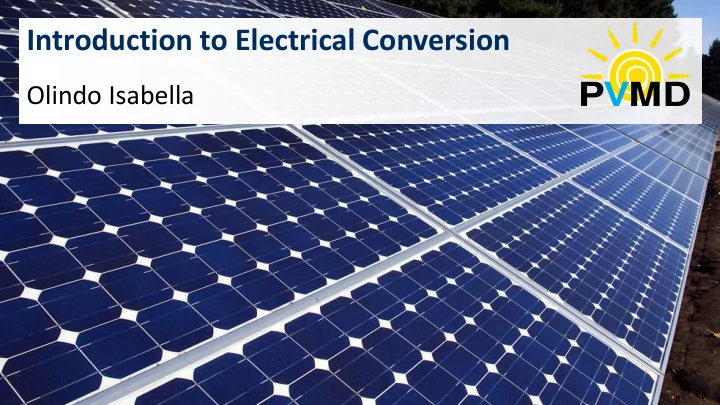

Introduction to Electrical Conversion PVMD Olindo Isabella Delft University of Technology
Plane of array PV modules irradiance Fluid-dynamic model q convection T ambient T sky q rad,sky q convection q sun Meteo data q rad,ground T module T ground θ M a s Balance of System Energy yield Surrounding landscape
Outline V chapter DC-DC converter 1. Introduction to electrical conversion 2. Electrical components 3. Topologies 4. Efficiency of a buck-boost converter DC-AC inverter
Outline V chapter DC-DC converter 1. Introduction to electrical conversion 1. Motivation 2. Definitions 3. Requirements 2. Electrical components 3. Topologies 4. Efficiency of a buck-boost converter DC-AC inverter
Solar cell with a Resistive Load I Operating points Current [A] 1000 W/m 2 800 W/m 2 600 W/m 2 MPPs 400 W/m 2 200 W/m 2 Voltage [V] V
DC-DC Converter V PV = V L V PV V L
DC-DC Converter V PV = V L V PV V L
Implementing the MPPT MPPT Other input I Load I PV R meas V PV V L
The Ideal DC-DC converter Ideal impedance transformer I Load I PV V PV V L Ideal DC-DC converter
D ≜ T on T on = DT s ⇒ T off = (1 − D)T s T s The Ideal DC-DC converter V T S V PV T off T on V Load t
DC-DC Converter Electronic circuit which converts a source of direct current (DC) from one voltage level to another Topologies: • Buck converter • Boost converter • Buck-Boost
Recommend
More recommend